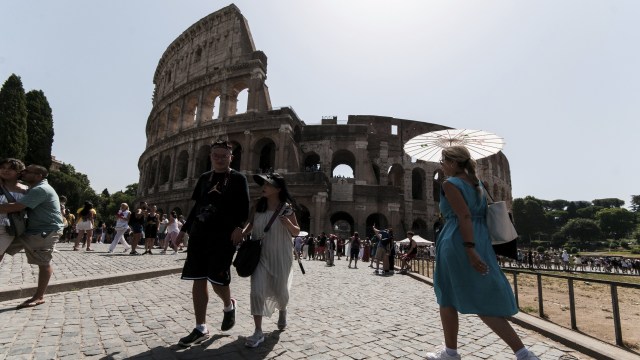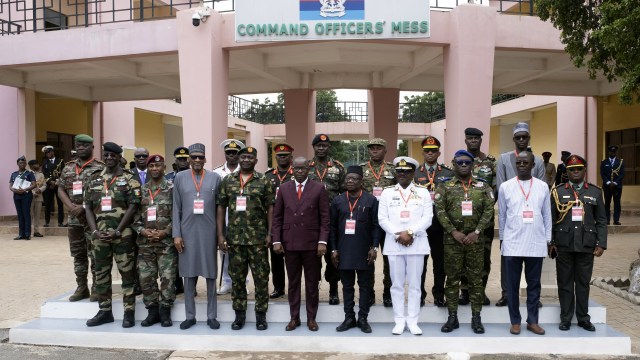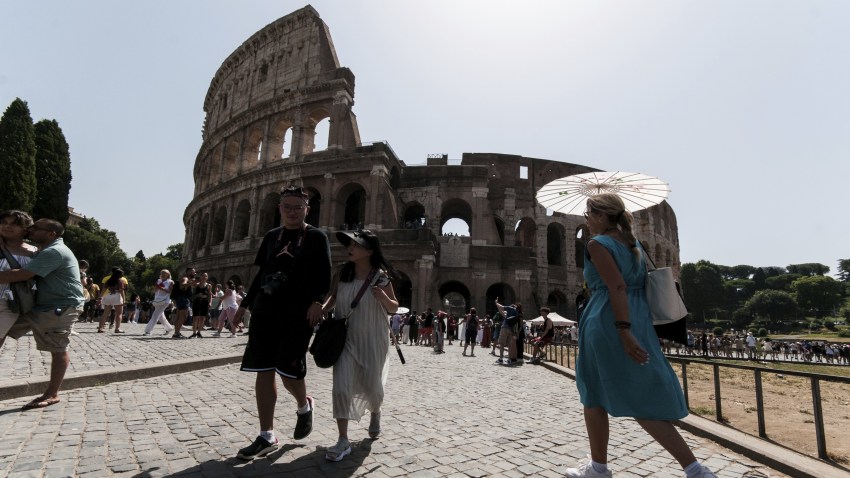Hi, everyone. Today at WPR, we’re covering how climate change is threatening Italy’s global brand, and why outside powers’ influence in Africa is waning.
But first, here’s our take on today’s top stories:
Syria’s civil war: Two rival U.S.-backed militias in eastern Syria have engaged in clashes for the past week, in an area where 900 U.S. soldiers remain stationed four years after the military defeat of the Islamic State in 2019. The fighting, which has left more than 90 people dead and scores wounded, pits Kurdish forces against Arab-led fighters. It risks opening the door to a reemergence of the Islamic State, but also to the return of the Syrian government’s presence and influence in the area. (AP)
Our Take: The Syrian civil war has largely dropped off the radar for most of the world. As Paul Poast wrote last September, many Americans are not even aware the U.S. military is still engaged in Syria, making it the “forgotten war” of the post-9/11 “forever wars.” But while the front lines in the conflict have remained largely stable and violence has diminished in the past few years, the underlying political conflicts that led to the war in the first place are nowhere near to being resolved. Given the continued presence of outside powers—including Russia and Turkey, in addition to the U.S.—that means that what seems to have become a “cold” conflict could easily heat up again, as Alexander Clarkson wrote last June.
Get the Daily Review sent straight to your inbox every weekday.
The fighting in eastern Syria takes place against the backdrop of protests that have sprung up around the country in the past month due to an ongoing economic crisis and repeated currency devaluations. Combined with a lack of reconstruction, that has left most Syrians in desperate straits, as Elizabeth Tsurkov explained in March. While regional governments have increasingly made their peace with Syrian President Bashar al-Assad, the past week’s fighting and the protests across the country highlight that Syria’s civil war is far from over.


Climate Change Is Eroding the Foundations of Italy’s Global Brand
Much of Italy’s global image has been built on its unique climate, which is responsible for the food and wine for which the country is known, as well as its popularity as a tourism destination. But as a result, Jakob Cansler writes, Italy’s elevated global status in popular culture now seems particularly vulnerable to the effects of climate change.
Africa’s Future Will Be Shaped by Africans, Not Outside Powers
African states are often portrayed as mere backdrops to geopolitical conflicts between distant outsiders. But that neglects the role played by regional institutions, neighboring states and nonstate actors in shaping and managing conflicts in Africa. As Alexander Clarkson writes, for all the hype surrounding great power rivalries, the current conflicts in Africa underscore how much external powers’ influence is waning compared to the more far-reaching impacts of local actors.


We want to hear your take on the issues we cover. We’ll select one person from those who answer the question below to receive a free month of full access to World Politics Review (existing subscribers will get a free month added to their term).
This week’s question: On Tuesday in the United States, the leader of a far-right, pro-Trump group was sentenced to 22 years in prison for his role in organizing the Jan. 6, 2021, attack on the U.S. Capitol. In your opinion, was the Jan. 6 attack, and the events surrounding it, an attempted coup by Trump and his supporters?

The EU’s incoming climate chief has been instructed by European Commission President Ursula von der Leyen to “intensify efforts” to develop carbon capture technologies as part of the bloc’s efforts to tackle climate change. But as James G. Dyke wrote in an in-depth article in June, while carbon capture and other technical approaches have the potential to unwind decades of delay and avert climate catastrophe, they are unproven and come with risks.

Geoengineering Without Decarbonization Won’t Solve the Climate Crisis
June 13, 2023 | Carbon dioxide removal and solar geoengineering could help with climate change mitigation, but they come with great risk. Read more.
That’s all for today’s Daily Review. Keep an eye out for upcoming coverage of the health implications of the climate crisis and a shocking new report on Sri Lanka’s 2019 Easter Day terrorist bombings.
Have a great day,
Judan Grunstein
More From WPR
- Zine Labidine Ghebouli on tensions between Algeria and Morocco.
- Paul Poast on BRICS expansion.
- Frida Ghitis on what recent elections in Ecuador and Guatemala say about what voters there want.
- Kelly Petillo on the uncertainty facing Syrian refugees in Jordan.

